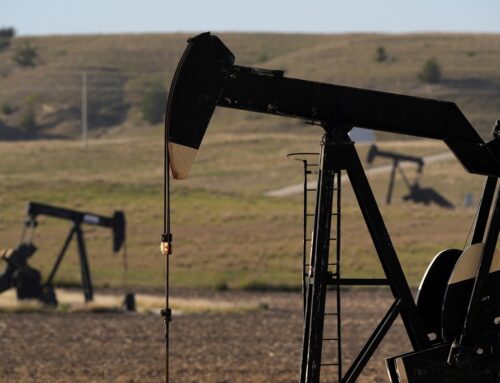Why your living environment defines how people perceive you
January 3, 2025
Stereotypes are pervasive.
We’ve all heard of stereotypes based on gender, race, age or religion. But what about making an assumption about someone’s personality based on their ecology?
According to a study co-authored by ASU psychology Professor Steven Neuberg, ecology stereotypes — which are based on living environments — can override race and family stereotypes.
The research discovered that people across a range of demographics viewed those who live in harsh, unpredictable environments as engaging in more impulsive behaviors.
“For harsh environments, we asked them to think about an individual who has lived since birth in a poor, economically underdeveloped community where money and jobs are scarce and unpredictable, and opportunities are limited,” Neuberg said.
The conclusion was drawn from seven studies run between 2016 and 2021, involving over 2,000 participants who were demographically and internationally diverse across the United States, the United Kingdom, India, Romania and Japan.
“It is quite striking how people from different countries and backgrounds consistently hold these ecology stereotypes about others who live in harsh environments,” said Oliver Sng, an associate professor at UC Irvine and principal investigator of the study. “These ecology stereotypes may actually explain why we have other stereotypes, like those related to race and family types.”
Sng and study co-author Keelah Williams are both ASU Department of Psychology alumni who were mentored by Neuberg.
ASU News spoke with Neuberg about the study and stereotypes in general — exploring why they exist, what forms they take and the profound impact they can have on people.
Editor’s note: Answers have been edited for length and/or clarity.
Question: What are “ecology stereotypes?”
Answer: What we’ve labeled “ecology stereotypes” are general beliefs people have about how environments influence the behaviors of those who live in them — the beliefs that those who grew up in and live in one kind of environment may possess certain traits, characteristics and behavioral propensities whereas people who grew up in and live in a different kind of environment may possess a somewhat different set of traits, characteristics and behavioral propensities.
Behavioral ecologists, who study the behavioral propensities of nonhuman animals, have learned a lot about how these animals’ ecologies shape their behaviors. Ecologies shape human behavior too, and we are interested in whether and how people use information about these ecologies to predict how others may behave.
Q: You focus on stereotypes of people from “harsh” ecologies. What are harsh ecologies?
A: Human ecologies differ in terms of their physical and social features, such as how high their pathogen loads are, whether important resources are spread out evenly across the terrain or are located in just a few spots, whether there are lots of genetic relatives around and the like. Ecologies also differ in how harsh and unpredictable they are. Harshness reflects the extent to which an individual has a high chance of dying from causes difficult to control, such as natural disasters and interpersonal violence. Unpredictability represents random fluctuations in environmental conditions that influence harshness.
Q: According to this stereotype, people living in harsher environments are seen as more impulsive, less invested in education and themselves for the long term, more sexually unrestricted and more aggressive. How did you come up with those qualities?
A: There’s a lot of research on nonhuman animals showing that, in general, those who live in harsh and unpredictable ecologies tend to — and I’m simplifying here — engage in what has been labeled a “fast” life history strategy that prioritizes rapid reproduction and gaining resources now rather than investing toward the longer term.
Such behaviors can be biologically adaptive in harsh and unpredictable ecologies: Reproducing earlier reduces the risk of dying without reproducing, having more offspring can reduce the likelihood of having all of one’s children die if circumstances turn dire quickly.
Similar behaviors have been observed in humans, too, such that growing up and living in harsher, less predictable environments tends to be associated with somewhat greater impulsivity, preferences for short-term sexual relationships, less educational investment and more risky and aggressive behavior.
Q: Such stereotypes and prejudices can have profound implications for how individuals are viewed and for the opportunities they have — explain that.
A: Yes, as we predicted, these ecology stereotypes had implications for how we should think about other socially important stereotypes. In our studies, certain stereotypes linked to race (Black versus white in the U.S.) and family structure (raised within single versus dual-parent households in Japan and the U.S.) seem to be grounded in these ecology stereotypes.
When we provided participants with direct information about others’ home ecology, that information either attenuated or even overrode people’s use of race and family structure stereotypes. That is, knowing the ecology where someone was from was used more to make inferences about their impulsivity and their preferences for short- versus long-term relationships than was race or family structure.
We all use stereotypes to make first guesses about a person. Often, we seek to learn more about people and go beyond those stereotypes, but often we don’t. When we don’t, our use of stereotypes to understand individual members of those groups constrains how we interact with them, what opportunities we give them and the like.
If these stereotypes suggest that a particular person might be impulsive or focused mostly on the short term, and I want to hire someone for a job that requires patience and long-term planning skills, I might decide that this person isn’t a good fit … and now this person doesn’t get the opportunity he might have if he were of a different race or family background. Stereotypes are often the foundation of discrimination.
Q: Let me ask you more about stereotypes. Why do we have them? Do stereotypes, like other kinds of generalizations, come about because there is some kernel of truth to them? Or are they wrongly held beliefs?
A: I’m glad you asked this because there’s a lot of confusion about stereotypes. Stereotypes are beliefs about groups and their members. We have them because we’re hoping to gain an understanding of the individuals we come across.
Some stereotypes, indeed, have a significant kernel of truth to them. But some stereotypes are much less accurate — especially those not based on actual experience with many members of the groups, communicated to us by folks who have reasons to be biased against the groups in question and so on. Moreover, even those stereotypes that do have a meaningful kernel of truth will never fully capture any particular member of that group. This is why even though we all use stereotypes to understand others at least initially, we also all dislike it when others stereotype us. After all, none of us are the perfectly typical exemplars of our groups.
Q: It’s often presumed that stereotypes and prejudices about people are simple, but they are not. How are stereotypes that people use to understand others quite complex?
A: Stereotypes and prejudices serve important, deeply functional goals for people, helping them move more effectively through their social worlds, enabling them to better manage potential opportunities and threats — even while these same stereotypes and prejudices may make life more challenging for others.
One implication of our view is that people’s stereotypes should be pretty nuanced, because people are pretty nuanced. For example, in real-world engagements, some of our other research reveals that people almost never stereotype others simply as male or female, or as young or old, but instead naturally think of others in terms of sex-age together, intersectionality. We can’t help but see that a person is a young woman or a middle-aged man — and, at least initially, stereotype them as such.
There are even stereotypes about stereotypes. It’s often presumed that stereotypes and prejudices people have are simple, but they are not. Our research has demonstrated that the stereotypes people use to understand others are often quite complex — more complex than can be accounted for by currently dominant theoretical approaches to stereotyping and prejudice. Understanding this nuance thus has important implications both for creating stronger models of stereotypes, prejudices and discrimination, and for reducing instances of inappropriate stereotyping and discrimination.
Q: What do you hope to accomplish or change with this study?
A: We’re trying to expand our understanding of how the human mind works to understand others, how people employ all sorts of information — like others’ home ecologies — to make inferences about them and how ecology stereotypes might inform how we understand people’s use of related stereotypes.
Ecology stereotypes may hold important implications for other group stereotypes. In the U.S., Black Americans — relative to white Americans — are more likely to live in harsher ecologies. If Americans know this, then perhaps certain race stereotypes … may be the result of people’s ecology stereotypes … and if people understand that the ecologies in which we live shape behavior more than does race, per se, then when people know not only another’s race but also their home ecology, then the information about ecology is likely to override race in stereotyping on the traits we’ve been discussing.
Search
RECENT PRESS RELEASES
Related Post



